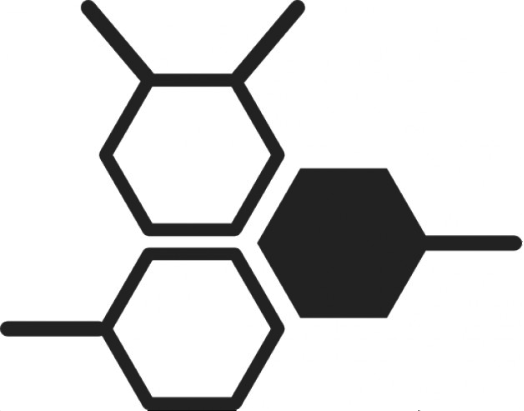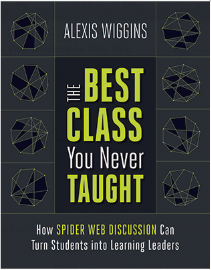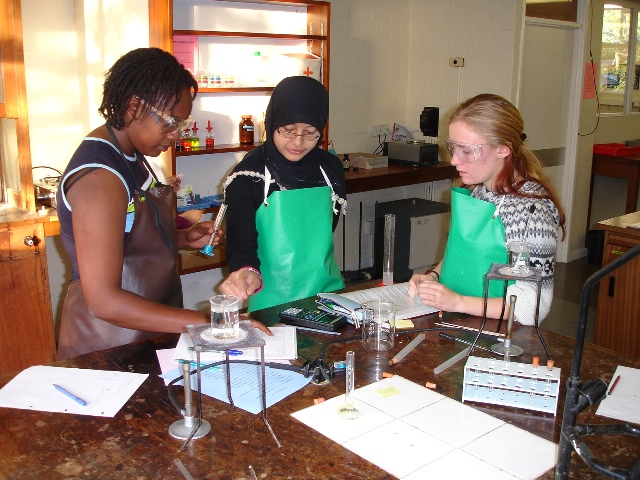Social skills
The importance of good social skills
 It perhaps seems a little odd to include social skills as something that we as chemistry teachers need to teach our students – don’t we have enough to do already simply to get through the syllabus? Surely by the time students get to IB Diploma age they should have already learned their social skills? - see "All I really need to know I learned in kindergarten" by Robert Fulghum on my page on the Learner Profile. However there is plenty of evidence that students who do not possess good social skills do not learn well. Social skills involve the interactions between students and their teacher and between students and other students. They do not only take place during formal contact time but also involve the use of social media and the internet. It is our job to facilitate social interaction and further develop students social skills. There are various obvious ways to do this such as using plenty of eye contact, listening to students, encouraging them and never ‘putting them down’. It is also important to allow them to fail at something (in a safe environment) as one of the best ways of learning is to learn from one’s own mistakes. We do normally get students to be sociable with each other when they work in pairs (or bigger groups) when they do practical work but it is also important to include collaborative work at times during normal classroom lessons.
It perhaps seems a little odd to include social skills as something that we as chemistry teachers need to teach our students – don’t we have enough to do already simply to get through the syllabus? Surely by the time students get to IB Diploma age they should have already learned their social skills? - see "All I really need to know I learned in kindergarten" by Robert Fulghum on my page on the Learner Profile. However there is plenty of evidence that students who do not possess good social skills do not learn well. Social skills involve the interactions between students and their teacher and between students and other students. They do not only take place during formal contact time but also involve the use of social media and the internet. It is our job to facilitate social interaction and further develop students social skills. There are various obvious ways to do this such as using plenty of eye contact, listening to students, encouraging them and never ‘putting them down’. It is also important to allow them to fail at something (in a safe environment) as one of the best ways of learning is to learn from one’s own mistakes. We do normally get students to be sociable with each other when they work in pairs (or bigger groups) when they do practical work but it is also important to include collaborative work at times during normal classroom lessons.
Collaborative learning
One approach to collaborative learning that is recommended by the IB Approaches to Teaching and Learning document is to try the 'spider web'. Spider is an acronym and 'web' exemplifies the strength and importance of all parts working together to provide an outcome much stronger than an individual as well as providing a physical map of the process.
 Spider web
Spider web
Synergetic—a collaborative, group effort with a single group grade
Process—a process that must be practised and honed
Independent —students work independently; teacher observes and gives feedback
Developed—a developed, sustained discussion that aims to “get somewhere”
Exploration—an exploration of ideas, texts or questions through discussion with a …
Rubric—a clear, specific rubric against which the students can self-assess
This is an approach taken by Alexis Wiggins who has written a book on the subject (see image above). It follows a sequence involving all the students in the class with the aim of getting them to arrive at key points through their own discussions. In some ways it is not unlike the 1-2-4 exercise I've discussed previously in Teaching skills . It can work well in subjects like TOK and literature (Wiggins is an English teacher). In chemistry it is probably less useful when topics are being introduced but may well be of value when it comes to problem solving. Essentially it provides a way of training and encouraging students to work together collaboratively in their problem solving by following specific processes such as modelling, peer grading and feedback sessions.
Cultural differences
 Many IB schools will have students from different cultures and backgrounds. If you find yourself in such an environment you will need to be culturally aware. What is socially acceptable (possibly the social norm) in one country may well be socially unacceptable and may even cause offense in another culture. When I first started working at Atlantic College, where we have students from over 70 different countries, I quickly realised this. For example, students from one particular part of the world were invariably polite and socially adroit but they used to cause offense in some of the local shops as it is not their custom to say “please” when asking to buy something. The local shopkeepers often remarked on how rude these students were, whereas in fact they were nothing of the sort, they just appeared to be rude to someone from a different culture. It can be worth having an open discussion with your students if they are from diverse backgrounds as no-one wishes to unintentionally cause offense. Even this can be difficult with those students who have always been brought up to think that the teacher is always right and it is not polite to talk in class!
Many IB schools will have students from different cultures and backgrounds. If you find yourself in such an environment you will need to be culturally aware. What is socially acceptable (possibly the social norm) in one country may well be socially unacceptable and may even cause offense in another culture. When I first started working at Atlantic College, where we have students from over 70 different countries, I quickly realised this. For example, students from one particular part of the world were invariably polite and socially adroit but they used to cause offense in some of the local shops as it is not their custom to say “please” when asking to buy something. The local shopkeepers often remarked on how rude these students were, whereas in fact they were nothing of the sort, they just appeared to be rude to someone from a different culture. It can be worth having an open discussion with your students if they are from diverse backgrounds as no-one wishes to unintentionally cause offense. Even this can be difficult with those students who have always been brought up to think that the teacher is always right and it is not polite to talk in class!

 IB Docs (2) Team
IB Docs (2) Team